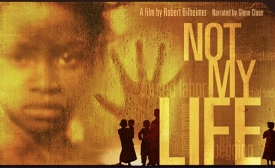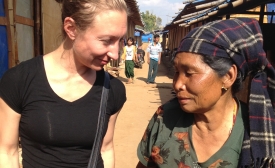human trafficking
Cuba is winning accolades for its international “doctor diplomacy,” in which it sends temporary medical professionals abroad—ostensibly to help poor countries battle disease and improve health care. But the doctors are not a gift from Cuba.

The U.S. State Department released its annual Trafficking in Persons Report today, which classified countries based on their efforts to combat the practice. There aren’t automatic penalties for countries found to be in violation, but the law does at least suggest that that the U.S. refrain from providing non-humanitarian aid to the worst offenders.
China gets upgraded in the 2014 Trafficking in Persons Report for better efforts in battling against human trafficking in the country. The report, released by the U.S. State Department which is tasked with bilateral and multilateral diplomacy for trafficking in persons, ranks each country according to four tiers based on their compliance to the Trafficking Victims Protection Act.
The United States government’s decision to place Uzbekistan in the lowest category of its annual human trafficking report sends a message of solidarity to the well over a million Uzbeks forced to pick the country’s cotton crop, the Cotton Campaign, of which Human Rights Watch is a member, said today.
The US is considering downgrading Thailand to a human trafficking blacklist, following revelations in the Guardian that slaves are being used in the production of prawns sold in leading American, British and European supermarkets. Washington will directly address allegations of human trafficking in Thailand's trade in prawns – known in the US as shrimp – in an imminent report that could result in economic sanctions against Bangkok.

In recent weeks, warfare in Burma’s Kachin State has increased and is now making its way closer to the Burma-China border. While the international community has paid little attention to the Kachin conflict over the past few years, understanding its complexity is now more important than ever. Failing to do so could have dire implications on the lives of Kachin women, and on diplomatic relations in the region.
Under the guise of improving laws against trafficking, states around the country are pushing policies that raise penalties for patronizing prostitution. This January, Human Trafficking Awareness Month, it’s time we faced the facts that these efforts will ultimately fail to protect trafficking victims. First, let’s consider the complex definition of human trafficking. Human trafficking is a scheme where a perpetrator compels another to work against her will through force, fraud or coercion.







